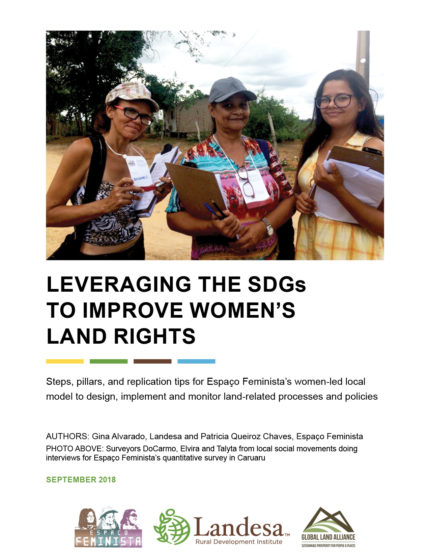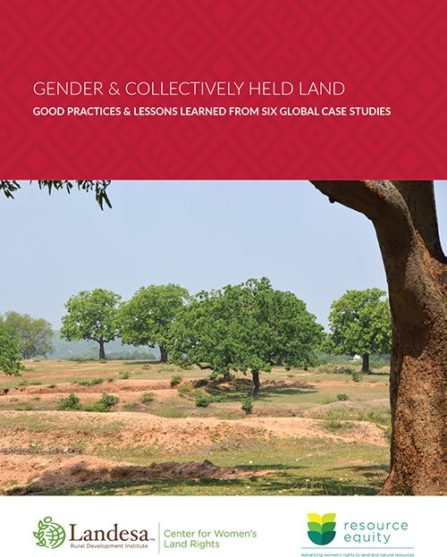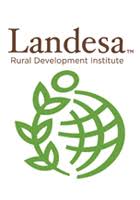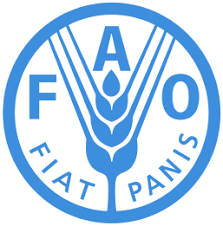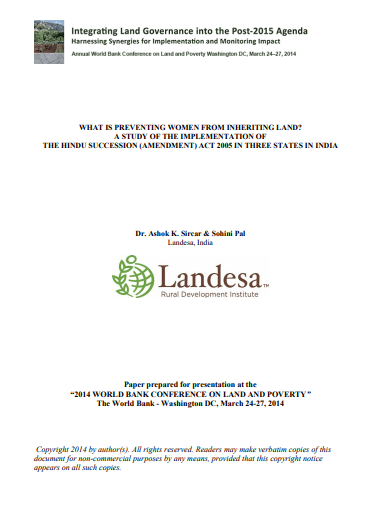LEVERAGING THE SDGS TO IMPROVE WOMEN’S LAND RIGHTS: MODEL VALIDATION
Steps, pillars, and replication tips for Espaço Feminista’s women-led local model to design, implement and monitor land-related processes and policies.
The Sustainable Development Goals have created an extraordinary window of opportunity to increase the attention to women’s rights and women’s land rights in particular.

